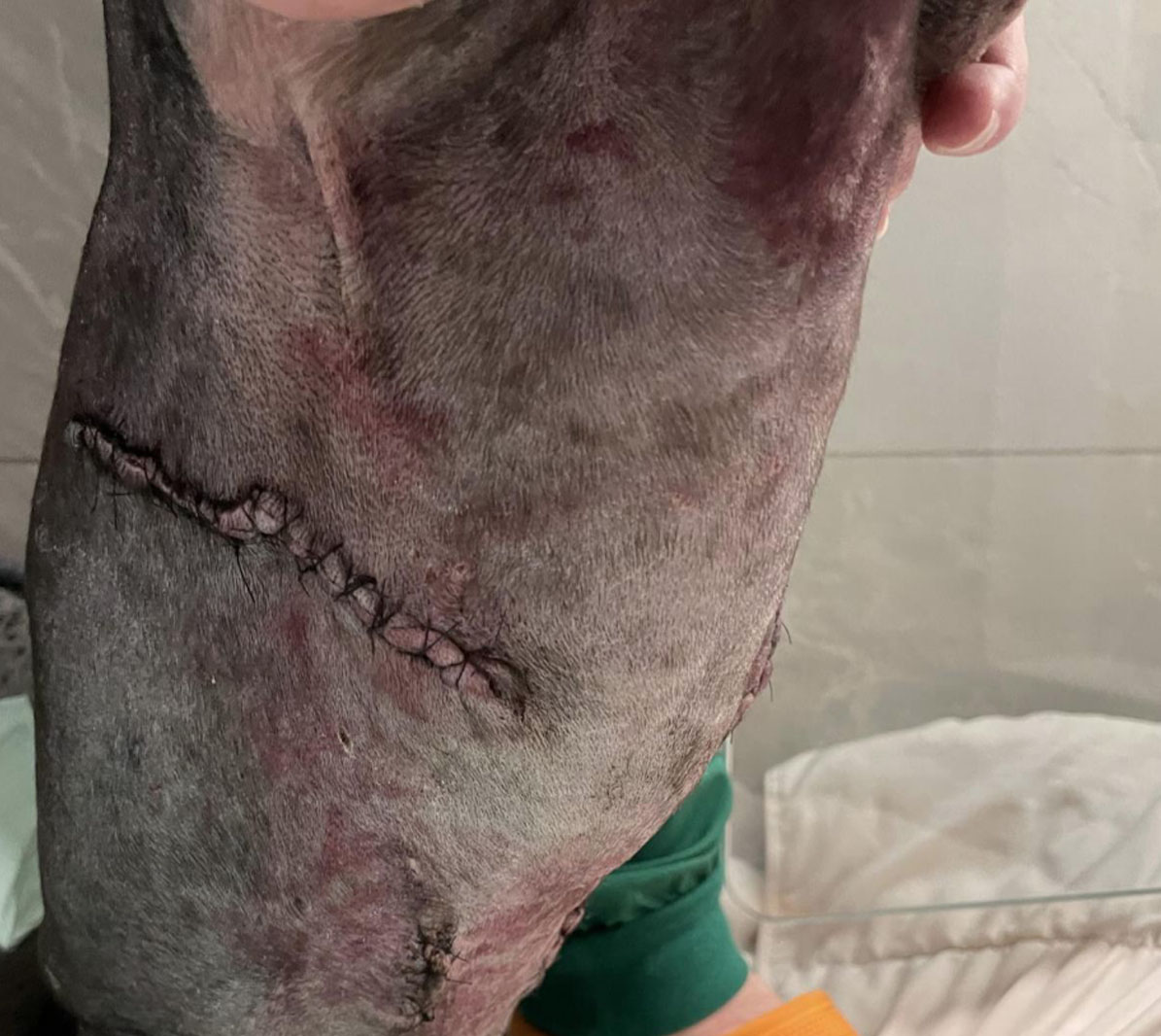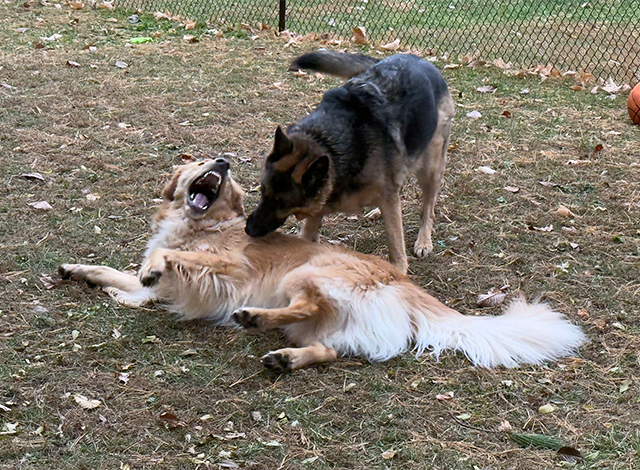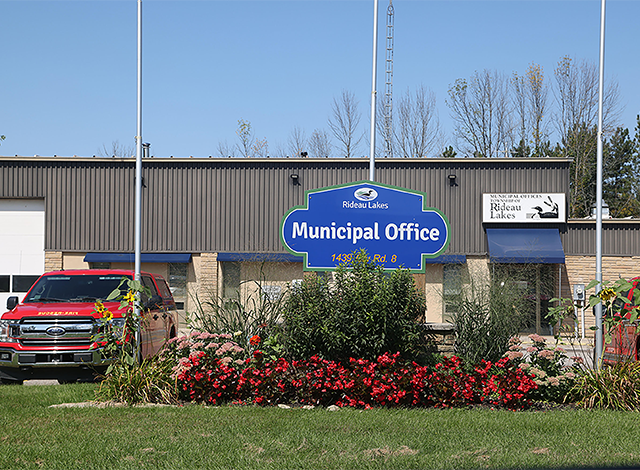Township to take a deeper dive into animal control bylaw
LAURIE WEIR
What is a vicious dog?
According to Rideau Lakes bylaw, it means any dog which has bitten another animal or person without provocation.
Breeds are not identified.
In light of recent alleged dog attacks in Rideau Lakes Township, council has agreed to take a deeper dive into their animal control bylaw.
The issue came to the municipal services committee on Monday, Oct. 28 when Grant Leslie spoke about the situation that he has encountered on his road, Shore View Lane, just off Mahon Road (northwest of Old Kingston Road).
Council heard from Grant Leslie who urged them to address safety concerns after what he said were repeated attacks by neighbourhood Czechoslovakian wolfdogs on his pets and family. He showed graphic photos during his presentation where his pets had been shaved and sutured. He also said he himself was bitten by a wolfdog.
Leslie called for changes to local bylaw that could better prevent vicious dog attacks, specifically in residential neighborhoods.

He said the dog encounters have escalated over the past 11 months. One of his dogs was so severely injured it had to be euthanized, and his daughter’s dog required a $16,000 surgery after another attack, he said.
These incidents were reported to the Ontario Provincial Police (OPP) and animal control, yet Leslie expressed frustration with the lack of action, noting, “My wife and I carry bear spray when we’re outdoors with our dog.”
The Czechoslovakian wolfdog breed, Leslie explained, was initially developed by the Czech military during the Cold War by crossing Carpathian wolves with German shepherds. While modern versions of the breed have less wolf DNA, they retain a high prey drive and are known to be difficult to contain with conventional fencing.
Leslie argued that invisible fencing has failed repeatedly to contain the dogs in question.
Council members acknowledged Leslie’s concerns.
Coun. Deborah Hutchings offered empathy toward the situation but noted that the issue could also impact farming properties, emphasizing that certain working dogs are bred for protective purposes – like her four Great Pyrenees that protect her sheep. She said she wanted to hear both sides of the story and asked if Leslie’s dogs had ever run on the neighbouring property.
Leslie referred to the Ontario Dog Owner’s Liability Act that states the owner of a dog is liable for damages resulting from a bite or attack by the dog on another person or domestic animal. (R.S.O. 1990, c. D.16, s. 2 (1).
He said they found their dog on a towel, on the property line, “so we don’t know where the attack occurred,” and when the dogs attacked his daughter’s dog, she witnessed the event, “and she saw them come across the invisible fence.”
Their second dog was on a leash when the neighbouring dogs came through the woods at them, “and you saw the damages that were inflicted.”
Coun. Paula Banks shared her concerns over the definition of “vicious dog” and called for staff input and more investigating. This could impact any resident with a large protective breed, not just wolfdogs.
Council noted that pending charges against the wolfdog owners could provide additional incentives for compliance.
Leslie added, “This isn’t about a specific breed, but about vicious behaviour. We can’t wait until someone is seriously hurt.”
Fire Chief Gene Richardson, who is the bylaw control officer, said a fine of $110 was issued to the wolfdog owner. He said there was no indication of euthanasia at this time.
Chief administrative officer Shellee Fournier said the wolfdog owner had obtained a lawyer, and the case will return to court in January 2025.
Mayor Arie Hoogenboom said a $110 fine probably won’t motivate anyone to do anything if they love their dogs, but the results from the January court date “may be enough disincentive to bring those dogs back to your neighbourhood.”
Council members said they’d keep residents updated as the legal process unfolds and further discussions are scheduled.
Staff will research the situation and bring a report back to council.



















